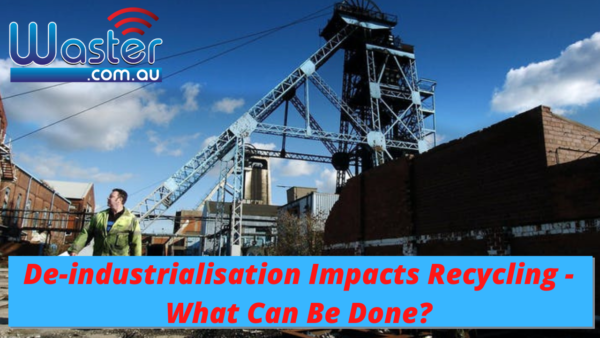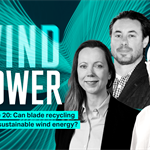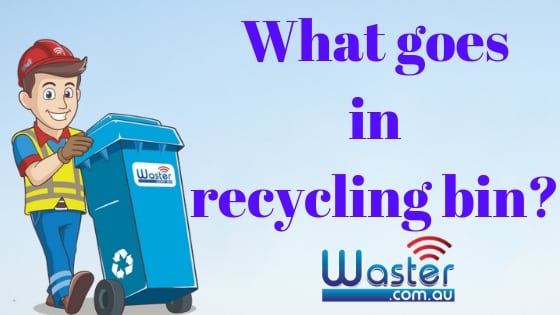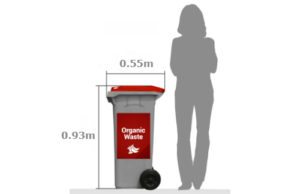Industrial Decline Hurts Recycling & Circular Economy 🏭Podcast Ep. 4
Energy Disrupter
Industrial Decline Hurts Recycling & Circular Economy 🏭Podcast Ep. 4
Listen on Apple Podcasts Listen on Spotify Listen on Google Podcasts Listen on Stitcher Listen on Amazon Music
In our fourth episode of our podcast – we look at how de-industrialisation impacts recycling and hurts the chance of a circular economy.
Transcript – Industrial Decline Hurts Recycling & Circular Economy
Hello and welcome to another edition of our podcast Recycle: Don’t be a waster run by waster.com.au and as usual we will cover one of the hot topics in the world of recycling and waste management today’s episode really follows on from a video we posted a couple of weeks ago that had some listener response and that was how de-industrialization and the increasing outsourcing of manufacturing in many developed countries is having real long-lasting impacts and detrimental impacts on the ability to recycle in these countries so I suppose to summarize really the issue we’re talking about is probably since the 1950s and 60s in many countries such as western Europe north America and Australia of course manufacturing heavy manufacturing heavy in the industry whether shipbuilding, car manufacturing really any sort of manufacturing whatsoever has just decreased the factories.
You’ll know this from visiting any former industrial city whether in the UK many areas in the north of England the famous rust belt in the United States and also in Australia where we’ve got former industrial cities such as Geelong and certainly even light manufacturing in areas of Sydney the manufacturing really has decreased to a level whereby those industrial areas have collapsed and you know that has been that’s led to a number of economic changes in those areas the first will be clearly throughout the 70s and 80s a real demographic impacts are real hard times for a lot of the former industrial workers and thankfully over time we have had new industries new service industries etc grow up from that but you know this this trend it’s not it’s not stopping it’s not even stabilizing it seems to even be accelerating.
Industrial Decline Hurts Recycling & Circular Economy
Even in the last five six years Australia has ended all car manufacturing so the big the traditional big operators in Australia Holden and Ford have moved overseas for all manufacturing and with that use the spill on effects of components other parts anybody who fed into that finished product with the sub products or parts they also have probably gone out of business and been hugely hurt so this trend it goes on and on and of course with that with the economic rise of China and east Asia over the last 20 years a huge proportion of the materials we consume in in western countries including Australia a huge percentage of these are fundamentally manufactured in lower cost economies such as China and basically exported to us so we consume them we probably get lower prices and that has been a great story for I suppose consumers in countries like Australia over the last period you know 20 years or whatever it is.
There’s an old saying that every cloud has a silver lining I suppose what’s the opposite of that every silver cloud has a has a dark shadow as well and on the edge and with this outsourcing or cheaper prices we have we’re facing considerable problems with recycling so if you if you look at what I suppose if you’ve covered the read the news or watch the television over the last number of years you’d probably be aware of a concept of a recycling crisis in many countries recycling’s in crisis or were don’t know what to do with these recyclable commodities or were stockpiling glass or we’re dumping perfectly good recycling materials at landfill or we’re examining the concept of incineration as a method to get some value from that material through energy so what is driving all these issues is I suppose to a large extent you can argue that as we consume more and more as plastic predominantly plastic creates a is a larger part of the materials we consume with this over time we’re consuming more items we’re probably throwing out more items in this you know short-lived consumer society that we live in but as we throw them out we were we need to find a solution for them and that’s either recycling or whatever it is. Industrial Decline Hurts Recycling & Circular Economy
Over the last 30 years as we’ve outsourced our manufacturing we also had the at the time seemingly good idea which in retrospect is probably a very poor idea of also exporting our waste and recycling to these same countries who are manufacturing the products in the same regard so you could almost view it as the container ships were coming here coming to Australia full of finished products and then they were heading back to China or whatever the manufacturing country was full of full of waste products or recycling this has and those countries were then recycling them into new products or new materials that then the circuit could continue you know China specifically has really put a clamp down on this probably about two or three years ago which threw a lot of these countries united states Australia western Europe into real recycling problems you know if you’ve no one to export this recycling materials to and you don’t have your own domestic recycling plants you can see the problem quite quickly so that is where the recycling crisis has come from and it’s probably brought this issue into the mainstream consciousness.
I suppose the issue we want to cover today is fundamentally the problem is caused by its caused by not having the recycling facilities available but fundamentally it’s caused by the actual lack of a manufacturing base or an industrial base domestically so if you think about it when you recycle we’ll even pick the most simple item which could be you know it’s a hot day and you go into a shop and purchase a soft drink you know potentially your soft drink you could obviously choose a an aluminium can which I would support because it’s more recyclable but let’s say you pick a plastic bottle so a plastic bottle of Coca-Cola or whatever your favourite soft drink is you drink that you drink that drink and then you do the right thing and you put the bottle the empty bottle into the recycling bin that product then will go to in theory it would be recycled it will be recycled into a new product and that product will potentially go to maybe manufacture a new bottle so there will be likely be a bottling plant somewhere in your in your city in a capital city in Sydney and that will be a virtuous.
You know an efficient recycling system but it relies on of course having the recycling facility in the city and also having an actual manufacturing plant to take that recycled plastic and utilize it so when you look at let’s take that that’s a good example but let’s take a bad example so say you buy a more industrial product you know some metal or some sort of type maybe that goes in the car manufacturing as the car is being you know recycled or taken apart at the junkyard the components which are taken out of that machine there is nobody as our industrial base has collapsed the recycling facilities domestically there aren’t as many and secondly there’s nobody actually to take that recycled material and if it is recycled in in Australia there’s nobody to method to actually take it because we’ve outsourced or seen all those factories and everything move overseas so without the actual industrial base the whole economic argument for recycling domestically it really decreases. Industrial Decline Hurts Recycling
At the end of the day there’s not much point in keeping things out of landfill and recycling them if in theory nobody ever uses them like are we just going to stockpile them in a corner so without that manufacturing base if you keep producing and consuming items keep producing rubbish in theory keep recycling it but if there’s no one to take it then you we run into huge issues in some commodity markets there are internationally traded recycling markets and specifically I think of you know the cardboard market where it’s traded internationally it’s an easily used material and also you have still manufacturing in Australia for cardboard so it is it’s a very efficient market it works effectively aluminium for cans also works the same but when you get into a significant other markers particularly sometimes with plastic or industrial products there just is not the actual end taker in this in this country or many developed nations to actually utilize it so we get into this issue again of do we export it to a third party so whereas the China and other countries have clamped down and accepting recyclable materials you know do we get into a situation of actually exporting finished or recycled materials so rather than exporting plastic junk we’re recycling the plastic and then we’re shipping that you know not as good as new but high quality recycled plastic overseas for with the expectation that an end user in China or some other country will actually use it to manufacture manufactured goods you know that probably would work but obviously with that we have significant issues.
Shipping it overseas costs significant money and you have to find a market for it in a third-party country so China has its own domestic industry they obviously have their own steel mills their own aluminium smelting their own plastic facilities so why would they actually buy you know western produced recycled product to utilize in their factories it’s not as if they have a shortage of themselves so in many regards you’re we’re looking at an economic situation where we are subsidizing the export of low-grade recycled materials and you know with that you’re paying into a market where there is no shortage of these materials to in many regard there’s probably an excess of them and so you’re to get rid of it without dumping it you probably will be looking at paying you know a subsidy towards the foreign the foreign company or country who’s going to take that so any way you look at it it’s not a great idea you know but where do we go from here. Industrial Decline Hurts Recycling
>Download Now: Free PDF Business Owners Guide To Commingled Recycling Bin Services
There’s an old saying in golf that you play the ball from where the ball lies it’s not possible to pick a perfect world you know are we going to rebuild massive infrastructure and you know manufacturing and industrial you know capacity in western countries whereby we haven’t had that in 20 30 years to be honest it’s highly unlikely, it’s we don’t have the skill set the economics of it may be right now don’t stack up and certainly I haven’t seen any government or you know regional area come up with a reindustrialization plan obviously industrialization carries with it significant other environmental issues such as pollution, greenhouse gases all those aspects and anybody who’s lived in a formerly industrial area will be aware that when industrial activity ceases or decreases the actual natural environment it sees significant benefits.
You’ll see this in the air quality you’ll see this in the water quality the river quality and like you’ll even see news articles about the Hudson river in New York city or the Thames in London being repopulated with fish and sea life that they haven’t seen in in hundreds of years and that stems directly from that d industrial the industrialization so as one thing benefits you know we’ve benefited by improving our environment but we still wanted to consume at consume consumer products and in many regards throw away products at the same level or even more so but with that we can’t hide from the fact that you know it always comes back to the same issue can we keep kidding ourselves that recycling will save the world but without actually looking at you know the real the you know the nuts and bolts issues that recycling faces you know will we hide from the idea that we I suppose for 20 years we did hide we hid from the reality by shipping or like our low-grade plastic and other items that we didn’t want to deal with we dealt with that by shipping it overseas and forgetting or not caring you know out of sight out of mind and we didn’t care about what happened to it but it made us feel better and we didn’t have to face those issues we could then report very high recycling rates etc but obviously you know as China develops and other countries develop they have the economic rationale for doing this decreases hugely.
[embedded content]
There was a story I think I saw on the BBC website last week where by a Scottish recycling company a supposed recycling company have been shipping supposed plastic materials to China and in reality was found out to be literally junk and some very disgusting junk also such as kids nappies and these sort of items so it’s you know I suppose the countries who have been importing recycling it’s completely understandable that they want to look after their environment the it doesn’t make sense to them anymore and that market let’s be honest is probably not going to ever reopen, so that escape valve that we’ve had of shipping things overseas I don’t think it will ever reopen and let’s see to be honest let’s hope it doesn’t we have to really face a real solution to this issue really look at the problems and fundamentally you have to either I suppose if you look at it you have a problem you have a flow problem you have a flow problem, like anything like water flows in one regard and if you don’t get rid of that water it will overflow so in theory we can either find ways of getting rid of the water or of decreasing the flow into the pool you know option one is we build new recycling plants in Australia and increase the industrial base to actually utilize that material or thirdly we subsidize that export and pay for it to be used by other countries overseas either way that is a significant financial investment I suppose the other option which is potentially better in my mind is we simply decrease the amount of materials that we’re utilizing that cannot be reused or recycled and fundamentally that comes down to decreasing the amount each the amount of plastic and another probably e-waste that we are that we’re accumulating but again as a society are we prepared to decrease consumption?
I’d have to be highly doubtful that we are I don’t think politicians ever stood up and discussed that and talked people through buying less for Christmas or you know what decreasing the amount of stuff we consume particularly coming out of covid and trying to you know get the economy moving again you know a lot of people are encouraging shopping and retail spending so it’s almost moving in the opposite direction but there’s that old saying that things that can continue must end and this fundamentally must end when it ends who knows but in the long term in the medium term we can’t keep going with this scenario we have to decrease the amount of materials that we need to recycle or find a better way a more efficient way of reusing or recycling them or fundamentally if we don’t do that I would argue the only show in town potentially is incineration you know which the swedes the Japanese use to at least get some benefit economic and environmental and financial benefit from those materials. Industrial Decline Hurts Recycling


My understanding is Sweden for example incinerates nearly all the waste it produces and then they don’t need to utilize as much fossil fuels so it’s a carbon you know it’s a carbon beneficial benefit to the environment so you know I think these are tough questions I think these are questions that obviously I’m not going to answer today and I don’t think any of us very few of us even ask the questions let alone provide the answers so as a longer term strategy you know we look at that environmental conference in Glasgow you know these are the questions I would like to see people discussing you know as world trade increases again and you know hopefully the world gets back to some semblance of normality people talk about a new normal etc which is a term obviously that a lot of people disagree with but I think we do need a new normal when it comes to recycling to circular economy you know to those aspects and because without it I you know it’s just going to be if we if we have this discussion again in five years pardon me in five years it’ll just be a worse scenario so yeah I think hiding from the truth you know burying your head in the sand is never the right the right scenario when you see problems we have to discuss them and address them so yeah I’ll leave it there today.
I’ll be interested to hear you know any listeners feedback on this and but otherwise like and subscribe you know leave a review on any platforms you’re on because when we get reviews that will help us I believe rank better in the algorithm with the podcast and at the end of the day we get more listeners we build a bigger community so thanks again and I’ll leave you with the slogan recycle don’t be a waster. Industrial Decline Hurts Recycling
















